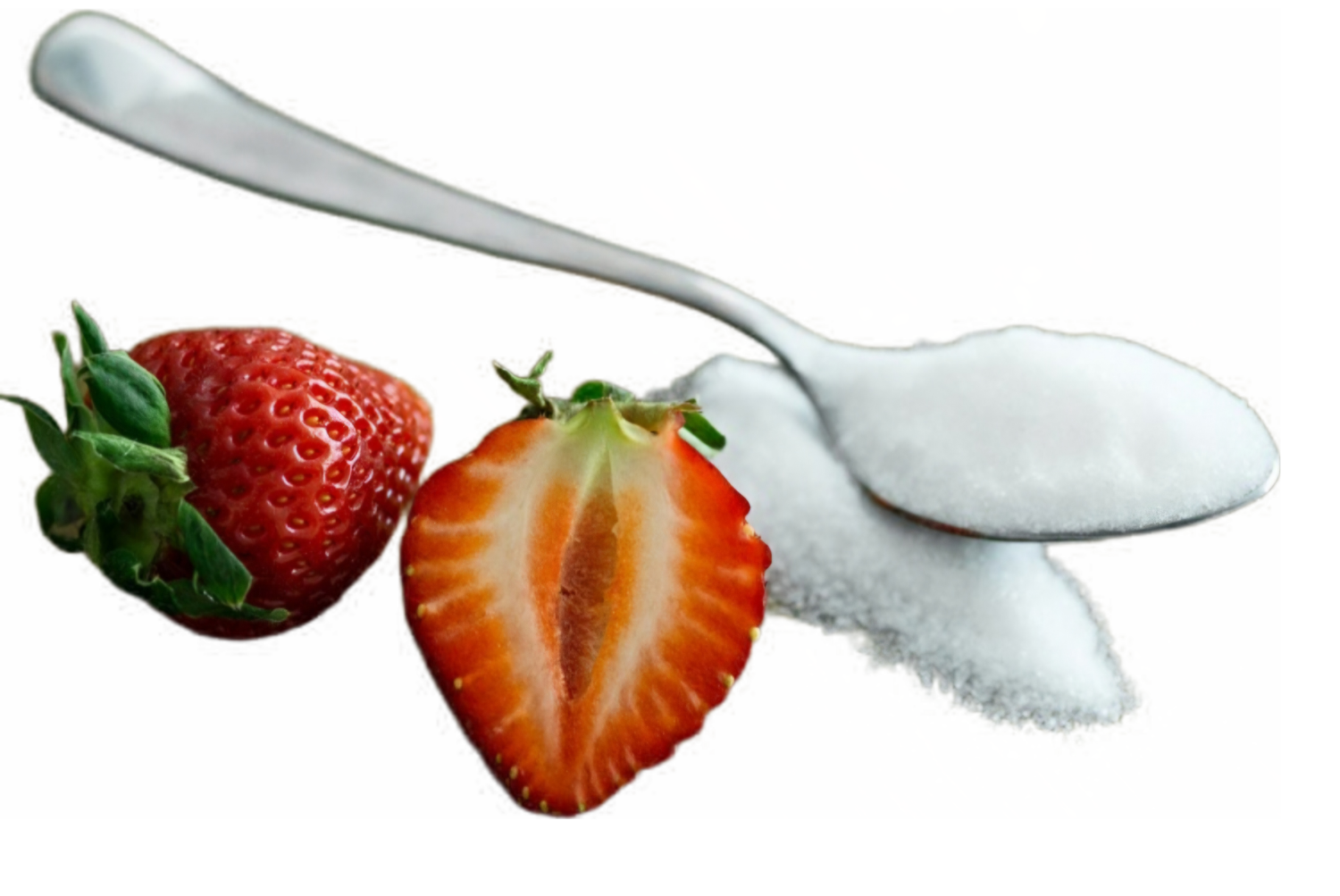
Is allulose a healthy alternative to sugar?
Allulose StoreSource: MedicalNewsToday
Medically reviewed by Kathy W. Warwick, RDN, CDCES, Faculty of Nutrition — Written by Jessica Caporuscio, PharmD, August 30, 2019.
Allulose is used as a sugar substitute
Diabetics and those suffering from obesity can also benefit from this sugar substitute, as it is low in calories and has little effect on blood sugar levels. However, it can cause some side effects.
According to a 2019 study , allulose “immediately fills the mouth like table sugar, but its calorie content is reduced,” making it an attractive sweetener.
This study also suggests that scientists need to conduct more high-quality research to confirm the long-term safety and effectiveness of sweeteners like allulose.
Read on to learn about the benefits and risks of including allulose in your diet.
What is allulose?

Allulose is a lower-calorie alternative to regular sugar.
Allulose is a type of sugar that is similar to fructose, a naturally occurring sugar in fruits.
It is available in granulated form and looks like ordinary sugar (sucrose).
Allulose is a low-calorie sweetener with a sweetness value of 70% that of sucrose .
According to the Food and Drug Administration (FDA), allulose contains about 0.4 calories per gram, which is significantly lower than the 4 calories per gram of sugar. .
Additionally, the body absorbs allulose but does not convert it into glucose, making it virtually calorie-free.
According to the FDA, allulose has little or no effect on blood sugar or insulin levels .
Scientists can produce allulose in a lab, but it is also found naturally in certain foods , such as dried fruits, brown sugar, and maple syrup.
Other names for allulose include psicose, d-psicose, d-allulose, or pseudo-fructose.
Does allulose have any beneficial effects?
Allulose contains fewer calories than sugar and does not appear to have any effect on blood sugar levels, meaning it may be a healthy alternative to sugar.
Doctors agree that sugar is a significant contributor to obesity .
Obesity is associated with metabolic disorders such as diabetes , high cholesterol , and cardiovascular disease.
Replacing high-calorie sugars with low-calorie alternatives, such as allulose, may help control obesity rates.
According to a small 2015 study , allulose may have beneficial effects on type 2 diabetes and obesity.
Researchers report that allulose may help regulate glucose levels and improve insulin resistance .
Most of the research on the effects of allulose has used animal models.
In a human study , researchers investigated whether allulose could help reduce body fat, affect blood cholesterol levels, and influence markers of diabetes.
The results showed that those who consumed high doses of allulose had significantly reduced body fat percentage, body fat mass, and body mass index ( BMI ) compared to those who took a placebo.
The researchers used CT scans to examine changes in the participants' abdominal fat area. At the end of the study, those taking the high-dose allulose had a significant reduction in total fat area compared to those taking the placebo.
The study also reported that allulose had little effect on people's blood fat levels.
Triglycerides , total cholesterol, and low-density lipoprotein (LDL) cholesterol levels remained unchanged in all groups.
The results of the study indicate that replacing sugar with allulose may have potential benefits for people who are overweight or obese.
The study only included a small number of volunteers, so researchers need to conduct further studies in a more diverse study population to confirm the results.
How should allulose be used?

FDA approved the use of allulose in many frozen desserts.
Allulose is not as sweet as sugar. Those who replace sugar with allulose may find that they need to use more allulose to achieve the same sweetness as they would get from sugar and other sugar substitutes.
The FDA has approved allulose for use in the following:
- selected baked goods, such as sweet rolls, cakes, and pastries
- non-alcoholic beverages
- cereal
- chewing gum
- sweets and creams
- frozen dairy desserts, such as ice cream, fudge, and sorbet
- yogurt and frozen yogurt
- salad dressings
- gelatins
- puddings and fillings
- hard and soft candies
- jams and jellies
- sweet sauces and syrups
- heavy cream
- foods for medical purposes
Possible side effects
According to the FDA, people may experience some abdominal discomfort when consuming large amounts of allulose, but this side effect is non-toxic and usually temporary.
In one study , researchers investigated the potential side effects of occasional or regular consumption of allulose.
People have reported abdominal side effects when consuming increasing doses of allulose, including:
- bloating
- abdominal pain
- diarrhea
- loss of appetite
- gas formation
- abdominal sounds
Allulose vs. its alternatives
Allulose is a type of sugar that is found naturally in certain foods.
Other sugar substitutes that people use:
• stevia
• aspartame
• saccharin
• sucralose
• neotame
With the exception of stevia, these sugar substitutes are not natural.
Manufacturers make aspartame and neotame by combining two amino acids (the building blocks of protein that occur naturally in the body), and sucralose is made from sucrose, or sugar.
The FDA has approved these sweeteners for human use and has classified them as generally recognized as safe.
Many beverage, dietary supplement, pharmaceutical, mouthwash, and cosmetic manufacturers use these low- and no-calorie sweeteners instead of sugar.
Manufacturers claim that artificial sweeteners can help people control hunger and appetite, lose weight, and manage diabetes.
Not all scientists agree, but sweeteners are among the most researched ingredients in the food supply.
They have been deemed safe by many medical associations and international regulatory bodies when consumed in normal amounts.
Can allulose be used on a keto or paleo diet?

A person following a paleo diet can consume allulose, which is found in unprocessed foods.
The Paleolithic diet involves eating vegetables, fruits, nuts, root vegetables, meat and offal, and excludes highly processed foods.
Those following the paleo diet can consume allulose, but only if it is consumed from natural, unprocessed foods.
Dried fruits, brown sugar, and maple syrup also contain allulose.
The ketogenic diet is very low in carbohydrates , moderate in protein, and very high in fat.
Allulose is a carbohydrate, but it provides no calories and does not raise blood sugar levels compared to sucrose, and it is keto-compatible.
Summary
Doctors say sugar is one of the factors that contributes to obesity.
Reducing sugar intake and replacing sugar with low-calorie or calorie-free sweeteners can help prevent obesity in two ways.
Compared to sugar, allulose is a low-calorie carbohydrate.
Some researchers suggest that allulose may help control weight and diabetes.
Those following a ketogenic diet can use allulose as a sugar substitute.
People are looking for affordable and safe sweeteners to replace sugar.
Consuming large amounts of allulose may cause digestive discomfort, but it has few other known side effects.
The FDA has also deemed other sugar substitutes, such as stevia, aspartame, and sucralose, safe when used in moderation.
If someone wants to try allulose or other sweeteners, they can be purchased at drugstores, some supermarkets, and online stores.
© 2025 Healthline Media UK Ltd, London, United Kingdom. All rights reserved. MNT is a registered trademark of Healthline Media. Healthline Media is an RVO Health Company.
The medical information published on the website is not a substitute for informed medical advice, and you should not take any action before consulting a healthcare professional!

